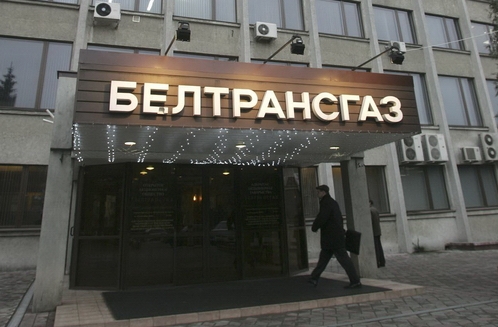
Moscow Puts the Heat On Minsk and Kyiv
Publication: Eurasia Daily Monitor Volume: 8 Issue: 149
By:

Moscow is piling the heat on Minsk and Kyiv to subordinate their economies, notably their energy sectors, to Russia and with that accept Russia’s political tutelage. In both cases, Moscow is using the instruments of its gas and its customs union (EurAsEc). EurAsEc has lent Belarus $800 million already and will lend an additional $2.2 billion over the next two years on condition that Minsk sells $7.5 billion in state assets to Russia including the remaining 50 percent of Beltransgaz, making Russia the sole proprietor of the Belarus’ gas transmission and distribution company. Gazprom and Moscow are also refusing to promise any break in gas prices for Belarus beyond 2011 when the current contract expires (Moscow Times July 14; Interfax, June 30). Indeed, Gazprom CEO, Alexei Miller, strongly denounced Minsk’s efforts to secure something in return for yielding its gas and sovereignty to Russia (Rossiya 24, June 30).
At the same time Moscow has proposed a merger of Gazprom and Ukraine’s gas company Naftohaz that would swallow up the latter. Yet in return for this, it has hinted that Gazprom might lower gas prices for Ukraine and release funds for the modernization of Ukraine’s gas transport infrastructure (Interfax, Rossiya 24, June 30). The economic difference in prices clearly betrays the ultimately political nature of Russian pricing arrangements and the common political objective, namely the elimination of these two gas companies as independent arms of their respective states. That outcome then entails the economic and political subordination of both states to Moscow.
However, the difference between Kyiv and Minsk’s responses could not be greater and this stems from the fact that Ukraine is not a member of EurAsEc and resists calls to join. Instead, President Viktor Yanukovych is holding to a 3+1 formula regarding Ukraine’s ties to EurAsEc, whose members are Russia, Belarus, and Kazakhstan (Interfax, July 8). Even though Yanukovych has said that Ukraine is “doomed” to cooperate with Russia and despite the fact that Kyiv is soliciting Russian help in developing oil and gas fields in the Black Sea, Yanukovych has staunchly refused to merge Naftohaz with Gazprom (Ukrainian Television UT1, Kanal 5 TV, July 8, Ekonomicheskie Izvestiya June 22).
Indeed, Naftohaz has reduced the amount of Russian gas it receives compared to such quantities for June and is reducing imports in general as the prices it pays for gas are slated to rise from $264/1,000 cubic meters in the first quarter of 2011 to $400/1,000 cubic meters in the fourth quarter (Interfax, July 12). Moreover, Prime Minister Mykola Azarov maintains that the current gas transport system can fully meet Europe’s need for gas, not only resisting a merger with Gazprom, but also suggesting (and doing so correctly) that Russia’s program for South Stream is unnecessary and superfluous (Interfax, June 14). Indeed, Ukraine, like Lithuania, might counter Russia’s gas pressure by reconsidering nuclear projects to construct new power generating units of the Khmelnitsky nuclear power plant (NuclearNO.ru, July 3).
Belarus, on the other hand is falling into ever more dependence upon Russia. Moscow is preparing to buy seven of the state’s most valuable enterprises in return for the EurAsEc loan. These firms would be privatized and then essentially turned over to Russian businesses making Moscow the master of the situation (www.slon.ru, July 13). These sales would be the fruit of a systematic policy of pressure on Belarus. For example, in 2011 alone, Moscow has quadrupled the price of the premium in the oil (and gas) price formula and driven Belarus’ petroleum processing sector into the red. And this is in addition to the fact that Belarus’ enterprises who export are utterly dependent on the Russian market as well (www.slon.ru, July 13). Since Minsk has long since burned its bridges with Europe, unlike Kyiv who is actually strengthening ties to the EU, Belarus now has nowhere to turn other than Moscow. As a result of the combination of steady Russian pressure and Lukashenka’s disastrous economic policies, the bills are now coming due and Moscow is ready to collect.
Both these cases show, however, that pricing decisions on gas remain essentially driven by political considerations and that Moscow’s ultimate aim is to strip these states as well as other post-Soviet states of effective instruments of their economic, energy, and political independence and sovereignty. Soon it will be too late for Minsk to retrieve any vestige of these attributes it is now ceding to Moscow. One can only hope that Kyiv continues to learn this lesson and to take those steps needed for it to avoid its neighbor’s fate.




